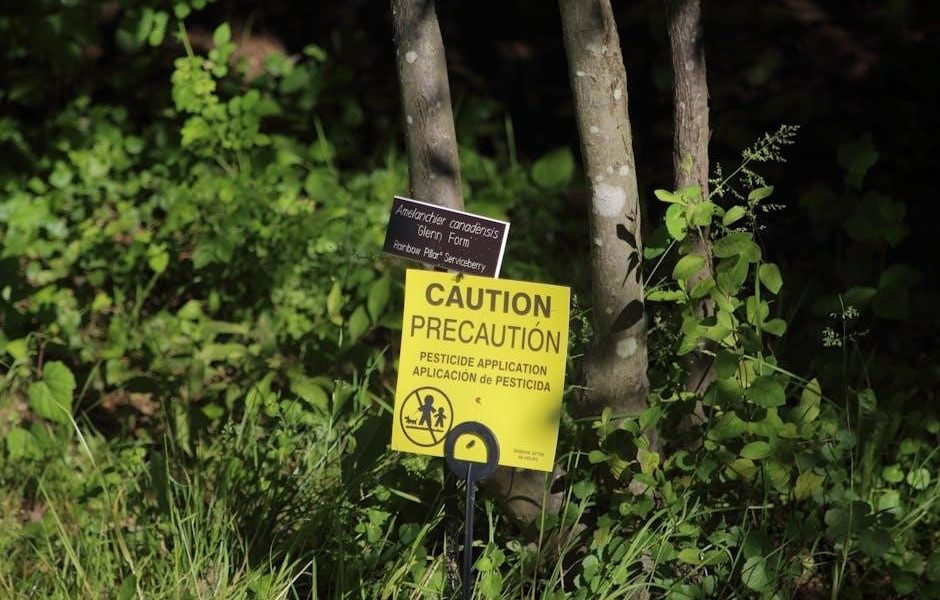A rental application form in Nova Scotia is a crucial document used by landlords to assess potential tenants. It ensures compliance with legal requirements and streamlines the rental process.
Overview of the Importance of Rental Application Forms
Rental application forms in Nova Scotia play a critical role in the tenancy process, ensuring fairness and transparency for both landlords and tenants. These forms provide essential information about potential tenants, such as their rental history, employment details, and financial stability, helping landlords make informed decisions. By requiring standardized information, they prevent discrimination and promote compliance with the Human Rights Act. Additionally, they streamline the rental process, reducing misunderstandings and disputes. Tenants benefit from a structured system, while landlords gain a reliable method to assess applicants. Properly completed forms are vital for maintaining legal compliance and fostering a positive landlord-tenant relationship. Ensuring accuracy and completeness when filling out these forms is key to a smooth rental experience for all parties involved.

Key Components of a Rental Application Form in Nova Scotia
A rental application form in Nova Scotia typically includes sections for applicant information, rental history, employment and income details, financial status, and references.

Applicant Information
The applicant information section requires personal details such as the applicant’s full name, date of birth, Social Insurance Number (SIN), phone number, and email address. This section ensures landlords can verify the identity of potential tenants. Additionally, applicants may need to provide their current address and employment details. Some forms also ask for emergency contact information to ensure landlords have alternative ways to reach someone if needed. This section is crucial for landlords to assess the applicant’s credibility and reliability. Accurate and complete information helps streamline the screening process, ensuring a smooth rental application experience for both parties. Separate forms are often required for each applicant, especially in shared housing situations. Providing false information can lead to rejection or legal consequences, emphasizing the importance of honesty in this section.
Rental History
The rental history section of a Nova Scotia rental application form requires applicants to provide details about their past tenancies. This includes the names and contact information of previous landlords, addresses of rental properties, and the duration of tenancies. Applicants may also be asked to explain reasons for moving and provide information about their rental payment history. This section helps landlords assess the applicant’s reliability as a tenant and their history of fulfilling rental obligations. Accurate and complete rental history is essential, as landlords often contact previous landlords to verify the information. In cases where applicants have limited rental history, additional references or guarantees may be requested to ensure a smooth tenancy. Honest disclosure is crucial to avoid potential issues during the approval process;
Employment and Income Details
The employment and income section of a Nova Scotia rental application form requires applicants to provide detailed information about their current and past employment. This includes the employer’s name, job title, length of employment, and monthly income. Applicants may also need to disclose additional sources of income, such as government assistance or investments. Landlords use this information to assess the applicant’s financial stability and ability to pay rent consistently. Proof of employment, such as pay stubs or an employment letter, may be requested to verify the details provided. Accurate disclosure of income is crucial, as it helps landlords evaluate the applicant’s suitability for the rental property. This section is a key factor in determining whether the application will be approved.
Financial Status and Assistance
The financial status and assistance section of a Nova Scotia rental application form asks applicants to disclose additional income sources or financial support they may receive. This includes government assistance, child benefits, or other forms of aid. Applicants are also required to provide details about any debt obligations or financial difficulties that could impact their ability to pay rent. Landlords use this information to assess the applicant’s overall financial health and stability. Honest disclosure is essential, as inaccuracies may lead to application rejection. This section helps landlords evaluate whether the applicant can manage rental payments alongside other financial commitments. It is a critical part of the screening process to ensure a tenant’s reliability and ability to meet lease obligations.
References and Additional Information
The references and additional information section of a Nova Scotia rental application form allows applicants to provide supporting details that strengthen their candidacy. This often includes contact information for previous landlords, employers, or personal references who can vouch for the applicant’s reliability and trustworthiness. Applicants may also be asked to provide additional documentation, such as proof of employment, bank statements, or letters of recommendation. Some forms may include an option to list a co-signer or guarantor, particularly for applicants with limited credit history or financial instability. This section ensures landlords can verify the accuracy of the information provided and make an informed decision. It is crucial for applicants to provide accurate and complete references to avoid delays in the approval process.

Legal Requirements for Rental Application Forms

Rental application forms in Nova Scotia must comply with the Human Rights Act, avoiding discriminatory questions, and cannot include application fees, ensuring fairness and legality in the process.
Compliance with the Human Rights Act
Rental application forms in Nova Scotia must adhere to the Human Rights Act, ensuring no discriminatory questions are included. Landlords cannot inquire about race, gender, disability, or other protected characteristics. The forms should only request relevant information, such as rental history, employment, and financial status, to assess suitability. Any violation may result in legal consequences, emphasizing the importance of fair and non-discriminatory practices in tenant screening.
Prohibition of Application Fees
In Nova Scotia, landlords are legally prohibited from charging application fees to potential tenants. This regulation ensures fairness and accessibility in the rental process, preventing financial barriers for applicants. Landlords must process rental applications without demanding payment, as such fees are considered unlawful under tenancy laws. Tenants who are charged application fees can file complaints with the appropriate authorities, potentially leading to penalties for non-compliant landlords. This prohibition protects applicants from exploitation and maintains a balanced rental market, fostering an equitable environment for all parties involved in the tenancy process.

How to Submit a Rental Application Form
Submission methods include email, fax, mail, or in-person delivery. Ensure all sections are completed accurately to facilitate quick processing and approval of your application.
Methods of Submission
Rental application forms in Nova Scotia can be submitted via email, fax, mail, or in-person. Applicants should check the preferred method with the landlord or property manager. For example, email submissions can be sent to addresses like MRHA.application@novascotia.ca, while fax submissions can be directed to 902-420-2815. Mailing applications to the Metropolitan Regional Housing Authority at 3770 Kempt Road, Suite 3, Halifax, NS B3K 4X8, is also an option. In-person submissions can be made at the same address. Ensure all sections are completed to avoid delays. Including required documents, such as proof of income and rental history, is essential for a smooth process. Always confirm submission methods and requirements with the landlord or housing authority to ensure compliance.
Tips for Quick Approval
To ensure quick approval of your rental application in Nova Scotia, submit all required documents promptly and ensure the form is fully completed. Provide clear and accurate information, including employment details, rental history, and financial status. Including references from previous landlords or employers can strengthen your application. Proof of income, such as pay stubs or bank statements, should be attached. Avoid delays by verifying submission methods in advance, such as email, fax, or in-person delivery. Double-checking the application for completeness and accuracy before submission is essential. Following up with the landlord or property manager can also help expedite the process. Being prepared to pay a holding fee or security deposit, if requested, demonstrates commitment and may speed up approval.

Commonly Used Forms and Resources
Commonly used rental application forms in Nova Scotia include the Residential Tenancy Application and Policy 36. Resources like Service Nova Scotia and Immediate Rent provide necessary templates and assistance.
Forms for Landlords and Tenants
Landlords and tenants in Nova Scotia use specific forms to ensure compliance with rental laws. Key forms include the Residential Tenancy Application, which landlords use to assess potential tenants, and the Lease Agreement, outlining rental terms. Tenants often complete the Rental Application Form to provide personal, financial, and rental history details. Additionally, landlords may use forms like Form B for abandoned property and Form K for addressing rental arrears. Tenants can access resources like Policy 36, which guides the rental application process. Both parties can find these forms through Service Nova Scotia or platforms like Immediate Rent, offering downloadable templates. These resources help landlords and tenants navigate the rental process efficiently while ensuring legal compliance and mutual understanding of rights and obligations.
Where to Find Additional Assistance
For assistance with rental application forms in Nova Scotia, tenants and landlords can access resources through Service Nova Scotia or the Metropolitan Regional Housing Authority. These organizations provide guidance on completing forms and understanding tenancy laws. Additionally, online platforms like Immediate Rent offer downloadable templates and tips for filling out rental applications. Local housing authorities and community organizations often host workshops or offer one-on-one support for those needing help. Tenants can also contact legal aid services or housing advocacy groups for advice on navigating the rental process. These resources ensure that both landlords and tenants have the support needed to complete applications accurately and efficiently, promoting fair and lawful rental practices across the province.



